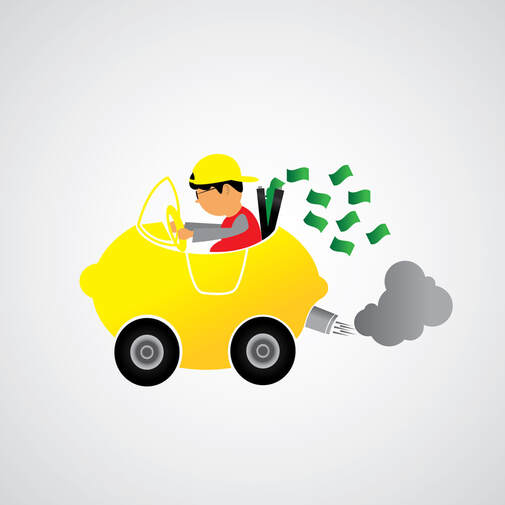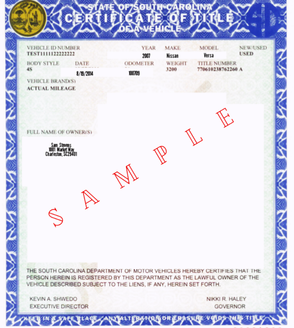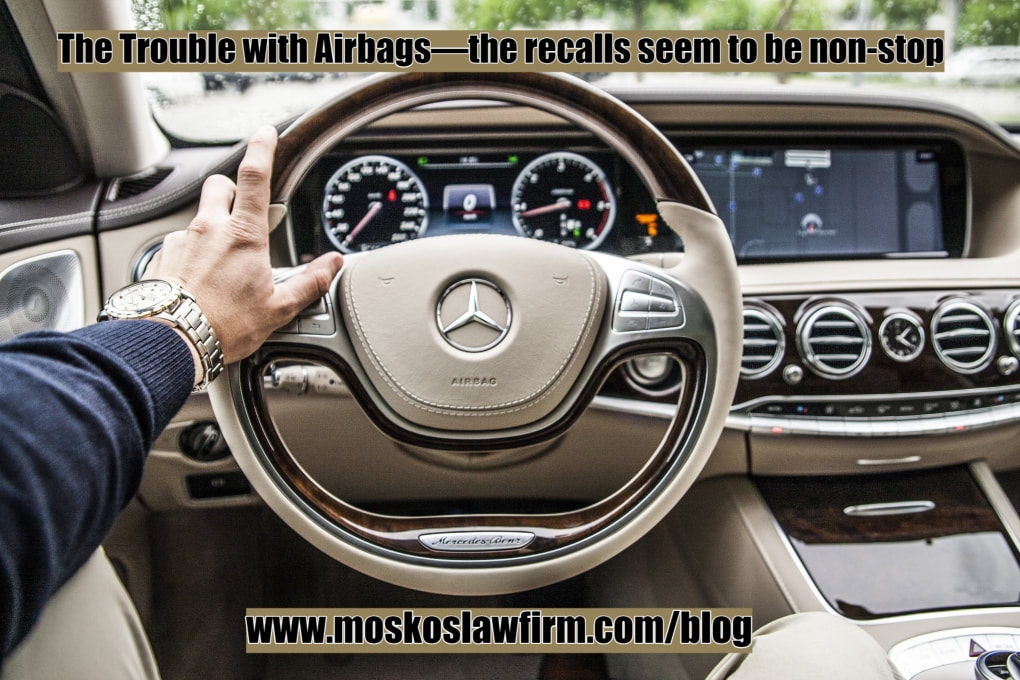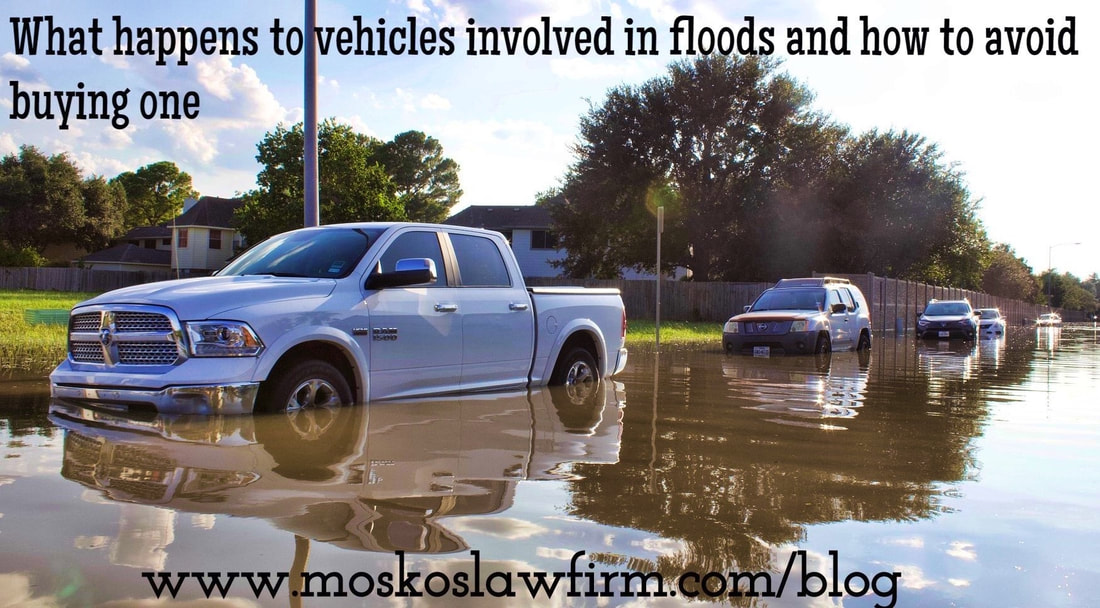|
When innovation meets the road, it is a very exciting idea that you want to join in on. The 2024 Tesla Cybertruck, with its futuristic design and promises of cutting-edge technology, was supposed to revolutionize the pickup truck market through the Tesla brand. However, in the short time since its release, there have been a series of consumer complaints and recalls that show that it might not be as amazing as you expected. Luckily, the South Carolina Lemon Laws are in place to protect consumers like you. Even with its robust appearance and advanced features, the 2024 Tesla Cybertruck has 7 official complaints filed with the NHTSA in the short time it has been on the market, making it one of the worst cars of 2024. This shows the potential reliability and safety concerns associated with this vehicle for consumers like you. The issues include electrical system failures and steering problems, which could leave you without control of your vehicle when you need it most. There are also concerns about visibility due to wiper malfunctions. One alarming report involved a steering alert that prevented the vehicle from being driven just after delivery, illustrating immediate and significant risks to driver safety. On top of the car complaints, Tesla has initiated two recalls affecting the Cybertruck that address critical safety issues that could impact drivers unexpectedly. This is more than many vehicles have in their entire life cycle. The first recall involves a trapped accelerator pedal, which could lead to unintended acceleration—a dangerous scenario on any road. The second, a systemic issue with incorrect font sizes on warning lights, might seem minor but can severely affect a driver’s ability to respond to critical alerts. Ultimately, this increases the risk of accidents. South Carolina’s Lemon Law provides you with the protection you need as a vehicle owner when you find yourself facing repeated and unresolved issues from a new vehicle that you purchased in the last three years. If your Cybertruck has persistent problems that Tesla cannot fix, you might be eligible for relief under the Lemon Law. You may be able to get a replacement vehicle or even a refund. That means you won’t find yourself left to shoulder the burden of a defective vehicle on your own. You don’t have to navigate these challenges alone. Steven Moskos is ready to help. If your experience with a 2024 Tesla Cybertruck is turning your dream into a distressing liability, it might be time to assert your rights. Contact us today to explore your options under the SC Lemon Law.
A Technical Service Bulletins (TSB), in the simplest terms, is a communication from the manufacturer about a known issue or defect in a specific make and model of a vehicle, but one that doesn't warrant a full-blown recall. While they aren't mandates for repair, TSBs guide dealerships and mechanics on how to address and repair consistent issues that owners might face. Vehicle owners can now find some TSBs, or manufacturers communications, for free through the National Highway Traffic Safety Administration (NHTSA). TSBs released earlier than 2012 will not be available through the NHTSA website. Looking up a TSB is a straightforward process:
Additionally, you can request a TSB on your vehicle is through your vehicle manufacturer’s dealership or repair shop. Once you know are armed with the right information, you can begin work on getting it fixed. It's wise to approach a manufacturer’s mechanic since they possess specialized training about the specifics of your vehicle and are more equipped to tackle issues highlighted in TSBs. So, what happens if the TSB does not fix the problem in your new car? You may have rights under the South Carolina Lemon Law. The SC lemon law is geared to protect consumers from manufacturing defects that can't be repaired after a reasonable number of attempts. If you believe you have a lemon, notify the manufacturer in writing about the issue; if unresolved, you may need the help of a SC lemon lawyer, like us at Moskos Law Firm, who can assist you with a possible refund or replacement. For those who discover they've unwittingly purchased a used vehicle that was previously deemed a lemon and repurchased by the manufacturer, it's pivotal to seek advice from an SC consumer fraud attorney who can help. Having a vehicle that constantly fails to function correctly can be an ordeal. But armed with the right information about TSBs, you're equipped to tackle the challenges head-on. If you need a consumer lawyer or a South Carolina Lemon Law attorney, contact us to find out how we can help. Way back in 1960, Volkswagen created an ad with the slogan “We pluck the lemons; you get the plums.” The ad was about the manufacturer’s high quality when it came to inspecting cars before they left the factory and focused on an inspector’s discovery that the chrome strip on the glove compartment on one car was blemished and had to be replaced. Would that Volkswagen be considered a “lemon” in South Carolina? Under South Carolina law, a new car is considered a “lemon” when it has a manufacturing defect that affects the safety, value, or use of the vehicle. If that defect shows up within the first twelve months or 12,000 miles of a car’s purchase, whichever one comes first, then the manufacturer must fix the vehicle for free. You can’t just arbitrarily decide your vehicle is a “lemon” and return it to the dealership expecting a full refund. Whether the problem you’re having with your car fits the above criterion is something a court would have to decide.
While you’re reading this, you might be thinking, what about my 2001 car that I just bought from the used car dealership? It needs a lot of repairs, and the salesman didn’t tell me about any of this. Doesn’t that mean the car is a “lemon”? Technically, yes, the car is a “lemon”, meaning it’s a bad car, but it isn’t a “lemon” under South Carolina law because it isn’t a new car. Does that mean you have no recourse if you’ve purchased a used car? Not at all. An experienced lawyer knows laws that apply to used vehicles and can help guide you in the right direction. Just because you’ve purchased an “unofficial lemon” doesn’t necessarily mean you’re stuck with it. So, whether you’ve purchased a new “lemon” or a bad car, talking to a lawyer is your best bet. The laws involving vehicles are complicated and can be quite confusing. It just makes sense to get advice from someone who has read and understands those laws. Anyone can end up with a new car that has constant problems. A new car like this is known as a “lemon” car, and there are laws to protect consumers who may purchase one. If you have one, you may be angry and not sure what to do first. If contacting the dealer where you purchased the vehicle does not bring you the results you need, you should contact an attorney who specializes in the “lemon laws” of your state. why you Need an AttorneyJust like other professions, attorneys often specialize in certain areas of the law. When you begin your search, make sure you ask the lawyer how much experience they have with lemon laws. If they don’t have much experience, you would be better off to search for another lawyer. The laws can be confusing, and you need someone who is familiar with the law in your area to guide you through the process of getting your vehicle repaired or replaced.
To be considered a lemon, a new vehicle must have a defect that is covered by the manufacturer’s warranty that became known during a certain time frame or number of miles you have driven. Every state has different lemon laws and different timelines which is why it’s important to contact an attorney as soon as possible after you start having problems with your new car as they are best able to guide you in the process. If you are unlucky enough to purchase a new vehicle from a dealership that cannot repair your vehicle, an attorney can contact the dealer or manufacturer on your behalf. Sometimes, a letter from an attorney is enough to force the dealer or manufacturer to discuss options with you, but this isn’t always the case. Most manufacturers require you to go through non-binding arbitration first. You and your attorney will have the opportunity to present your proof of attempted repairs and the time you were without your new car. Once the arbitration board has heard your case, the manufacturer may make an offer. You and your attorney can discuss whether to accept or decline the offer. If you decide the offer is not satisfactory to you, your attorney can file a law suit against the manufacturer of your vehicle. Your attorney can offer more of the evidence you have collected in court. Always be sure to keep careful records of repairs that were completed on your vehicle and any discussions you have had with the dealer you purchased the car from. All of this will be important in helping your lemon law attorney in building a strong case for your law suit. While it may seem like this is a simple process that you can handle on your own, the complexity of lemon laws are very confusing to someone who isn’t experienced with the law. You may miss an important detail or deadline that will prevent your car from being declared a lemon and repaired or replaced. It would be best to let an experienced lemon law attorney handle the process for you so you get the best outcome for your situation. Shopping for a used car is often more difficult than buying a car that is new. While odds are good a new car isn’t going to have been wrecked or have damages you can’t see, sometimes, used cars do. Some of those cars have salvage titles, and they are some of the most dangerous vehicles on the lot. That’s why it’s important to know what you’re buying before you sign the contract. Why do cars get salvage titles? In South Carolina, a salvage title is issued on a car when the cost of fixing the vehicle is 75% more than the value of the car. When this happens, the insurance company tells the DMV that the damage has met the 75% mark, and the DMV issues a salvage title for the car. Some of the reasons for a car being a “total loss” are flooding, electrical fires, and collisions. How can you be sure not to buy a car with a salvage title?
Research is the best thing you can do to ensure that you don’t buy a car with a salvage title. Start by asking the seller if the car has been previously wrecked? You can also use the Vehicle Identification Number (VIN number) to look it up with Carfax or the National Insurance Crime Bureau. You can also check if the vehicle has been reported stolen by calling a police department. It may be in your best interest to get the car inspected by a reputable mechanic and/or body shop as well. Is it illegal to sell a damaged car? Although it may seem illegal to sell a car that may be unsafe, it is legal if the car has a salvage title. However, a car salesperson must disclose that the car has a salvage title. A dealer cannot and should not hide the fact that a car has been deemed a total loss in the fine print of the contract. Dealerships have the expertise and resources to know when a car has been totaled so there is no excuse not to disclose the fact. Unfortunately, disclosure doesn’t always happen, and you can end up with a car that is too dangerous to be driven. To avoid the costly mistake of buying a car with a salvage title, do the research. Learning the history of a car before you buy it can save you a lot of money and heartache down the road. If you do discover you’ve unknowingly purchased a car with a salvage title, you should contact a reputable attorney immediately so you’re not stuck with a car you don’t feel safe to drive. You never know when a car accident might happen, but you can make sure you’re protected when it does thanks to safety features like airbags. Although airbags save lives, they’re not always foolproof – especially in recent years, as airbag recalls seem to permeate the news without signs of slowing down. Recently, Toyota and Subaru recalled more than 1 million vehicles with faulty airbags worldwide. Similarly, Mazda expanded its Takata airbag recall to an additional 155,000 cars. Not long ago, GM and Audi announced airbag recalls as well, with more than 100,000 cars affected. With all these car manufacturers announcing recalls, which cars are actually safe to drive? A lot of the smaller recalls, such as GM and Audi’s, affect newer models – so if you bought an Audi in recent years, it’s worth checking whether your airbag has been recalled. However, the largest recall of 2018 by Toyota and Subaru affects a lot more drivers. But don’t worry. While 1 million vehicles worldwide is a huge number to recall, keep in mind that only about 17,000 of those are in the United States. Here, the recall only covers about 17,000 Scion xA vehicles released from 2004 through 2006. Usually, you won’t have to look up for yourself whether a part of your car has been recalled because your dealer or manufacturer should contact you. But it is concerning to know that so many cars are not as safe as we thought they were. So why are all of these airbag recalls happening all of a sudden? There’s actually a simple explanation. The recalled airbags all come from a company called Takata, which provides airbags for multiple manufacturers. The issue at hand is specific to Takata’s airbags – basically, the ammonium nitrate used in the airbags becomes unstable and can cause them to suddenly inflate, launching metal shrapnel in the process. At least fifteen people have died because of this airbag issue in the United States, so it’s a serious issue. Takata’s airbags first started getting recalled about ten years ago, and regulators even launched an investigation. All in all, the recalls have affected nineteen manufacturers and 37 million vehicles across the world. If you haven’t checked already, now is a good time to make sure your car isn’t among them.
During hurricane season, it’s common to see news footage of cars getting washed away by storms. But few people understand what really happens to those flooded cars once the owners get them back.
While cars seem pretty strong and sturdy, they are basically just large electronics – especially if they’re newer models. And you know what happens if you throw a TV into a pool – there’s little that can be done to salvage it, and even if you can fix it, it’ll never run as well. A lot of cars that get damaged in floods will end up totaled, and about half of them will get re-sold on the market through salvage auctions, which means a lot of people have no idea they might be purchasing a used car that was previously in a flood. So how can you avoid purchasing a vehicle that was involved in a flood? First, make sure to track down the car’s Vehicle Identification Number, which is on the dashboard and title. There are many databases such as National Motor Vehicle Title Information System and VINcheck that allow you to look up a vehicle’s VIN to see where it’s been. Some cars do slip through the cracks thanks to state-by-state inconsistencies in salvaged vehicle branding so it’s important to look for other telltale signs. When looking at cars, buyers should first and foremost check for caked-on mud or any kind of peculiar odors in the carpets and other difficult-to-clean places. The headlights may also feature a visible water line on their lens, which is a major giveaway that the vehicle is flood-damaged. Another big clue is rust, especially in screws under the dashboard. While states have certainly made moves to protect consumers from unsuspectingly purchasing flood-damaged vehicles, there’s always a risk when it comes to buying used cars and a smart buyer will know to keep an eye out for suspicious signs.  What do you think are the most common types of complaints that consumers file with the government? Everyone has frustrating experiences with housing, health insurance, and other industries, but some South Carolina residents might be surprised (or not) to learn that vehicles are the number one complaint category in the state. According to the South Carolina Department of Consumer Affairs (SCDCA), about 19.5% of their cases in 2017 revolved around cars – used cars, repairs, and credit issues were some of the biggest problems. In fact, cars make up the majority of complaints nationally, too. But vehicles have only become a problem for consumers in recent years. "As the economy continues to rebound, more consumers are becoming active in the marketplace, especially purchasing vehicles," according to SCDCA Administrator Carri Grube Lybarker. South Carolina has protected consumers for years, though, as the state introduced a lemon law in 1989 to prevent the sale of defective cars (along with vans and small trucks – as long as they are passenger motor vehicles). Under the lemon law, consumers who purchase a car and find that its defects cannot be repaired are entitled to a refund. In order to get that refund, a South Carolina resident would have to participate in an arbitration procedure with the manufacturer (free of charge to the consumer) and if that process doesn’t help, only then can the purchaser go to court. The SCDCA’s job is to ensure the auto industry complies with these minimum requirements, especially in regards to flood-damaged cars which are often sold to people who have no idea of the car’s history. Indeed, the SCDCA addressed 105 violations of motor vehicle advertising laws and issued several fines in 2015, leading to justice for wronged consumers. Have you ever had issues with a car you recently purchased? Were you able to resolve them through the dealer or manufacturer, and if not, how did you deal with them?  In another post, I wrote that you do not have 72 hours to return a car. If nothing is wrong with the car, that is generally true; however, if the car is nonconforming, which means it is not operating as it should be, you may be able to return it. The legal concept is called revocation of acceptance. To return the car, the problem with the car must substantially impair the value of the car to you if 1) you accepted the car knowing about the problem but were assured by the dealer that the problem would be fixed, and it was not or 2) you accepted the car without knowing about the problem because it was too hard to discover the problem, or the seller assured you nothing was wrong with it. If the car is nonconforming, you must tell the dealer about it within a reasonable time. A “reasonable time” is not defined. It will depend on your circumstances so don’t wait. Tell the dealer you want your money back as soon as you can because the Court does not stop the clock, “time”, until you tell the dealer there is a problem with the car. Putting it in writing is even better. Keep a copy for your records. You must also tell the dealer about the problem before there is a “substantial change” in the car. There are plenty of things that could be a “substantial change” in a car. Think of it this way. You may not be able to return the car if you wreck it so don’t wait. Remember this is not legal advice. There are lots of scenarios that can change how to approach this situation. Sit down with an attorney to discuss your options and how your situation fits with the law. |
Archives
April 2024
Categories
All
|






 RSS Feed
RSS Feed